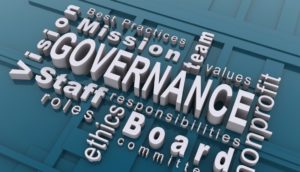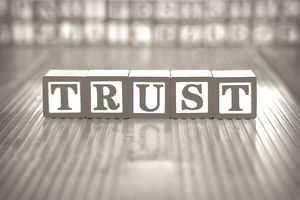
By Judy Coffey
A Note about Judy: Currently, Judy is involved with seven boards as chair, member, or advisor. In the span of her community service, her core focus has been on organizations promoting health, well-being, and safety nets for those being served. Her personal motto for involvement is, “Get into action and stay curious about the community around you”. When you speak with Judy about board involvement and leadership, you realize that passion and commitment play a huge role in her decisions about where best to serve. Team Leap is very fortunate to have Judy as an expert in community service and the role model she provides to all of us. Enjoy her wisdom in this article.
In this issue of our newsletter:
- Exceptional Communication Skills
- Visionary and Strategic Thinker
- Strong Leadership Presence
- Knowledgeable and Committed
- Governance and Decision-making
- Relationship Building and Fundraising
- Ego Management
- Your Rockstar Opportunity as a Board Member
As the board chair of a large nonprofit organization, I recognize the importance of setting the tone for the board and my time as a visible community representative of the organization. As the board chair, I form a strong working relationship with the Chief Executive Officer and act as a role model to motivate other board members to honor their commitments to service.

The Rockstar Nonprofit Board Chair
Every nonprofit organization relies on effective leadership to drive its mission forward. The role of the nonprofit board chair is key to ensuring the nonprofit board focuses on strategy and governance and empowers the Executive to drive operations with their staff. The board chair is responsible for guiding the organization strategically while ensuring accountability and sound financial leadership.
Qualities of a strong and impactful nonprofit board chair will demonstrate skills for the organization’s success in the following areas:
Exceptional Communication Skills
Excellent communicators are critical to fostering collaboration among board members, staff, and external partners. The chair is an open, active listener that encourages dialog, encourages dissension/opposing perspectives, and facilitates discussions that lead to all members being informed decision-makers. As chair, one should effectively represent the organization’s interest to the public, community stakeholders, and potential donors.
Visionary and Strategic Thinker
A strong nonprofit board chair has a clear vision for the organization’s future and can articulate the vision to the board, staff, and stakeholders. They think strategically and consider short- and long-term goals to achieve the vision. By aligning the organization’s strategic initiatives with its mission, the board chair effectively steers the board toward achieving its objectives.

Strong Leadership Presence
An exceptional board chair inspires others and motivates board members to actively participate in meetings. They create an environment that supports diversity, equity, inclusion, and belonging. Leading with integrity, the board chair gains the trust and respect of the board members and motivates them to contribute their skills and network to the organization.
Knowledgeable and Committed
A solid board chair demonstrates an understanding of the nonprofit sector, including the industry challenges and best practices. The chair invests time and effort to stay informed of the organization’s trends and developments that can impact the organization’s work. They show commitment to the nonprofit’s vision, mission, and values and dedicate their expertise to drive positive change. They also bring their years of leadership experience to mentor the Executive with timely advice, encouragement, and affirming their skills.
Governance and Decision-making
The board chair is critical to ensure the organization operates with strong governance principles and practices. They facilitate the meetings with a transparent and ethical decision-making process, demonstrating respect for diverse viewpoints while maintaining the organization’s integrity. The chair ensures compliance with legal and regulatory obligations while promoting responsible stewardship of resources.

Relationship Building and Fundraising
Most nonprofit board chairs play a role in fundraising efforts. They help build relationships with potential donors, foundations, and sponsors, leveraging their networks to secure resources for the organization. They inspire their fellow board members to make a sacrificial gift (within their means) to the organization and invite others to join them in their support. Building a connection between their networks and the nonprofit is key to their board role.
Ego Management
A skilled non-ego-based board chair is quick to acknowledge the leadership of their fellow board members and spread appreciation and recognition to colleagues and staff. They avoid focusing on themselves and their leadership skills and not taking credit for board initiatives and outcomes. The appreciation is cast widely and builds a spirit of team accomplishment. The non-ego board chair understands it is about the mission and vision and not about them. It’s not about them, it’s about the organization and its success.

Your Rockstar Opportunity as a Board Member
If you are considering a board membership opportunity, recognize your leadership skills and strengths. When you meet with the board chair, consider what you can bring to the board and share your passion for the organization. The board chair will share the qualities needed for the organization’s board, including time, passion for the mission and vision, accountability, network and community connections, and financial support through personal donations and fundraising.
The board chair’s role is instrumental in shaping the organization’s future, exemplifying strong leadership, practicing effective governance, and implementing necessary changes. At its core, the board chair supports a collaborative board culture and recruits members aligned with the mission and vision. They engage fellow members in ways that capitalize on their strengths, bringing value to the organization and ensuring a sound future for the organization.

Are You Ready to Leap?
*****
Leap Solutions is a diverse group of highly skilled management, organizational development, and human resources, and executive search and recruitment professionals who have spent decades doing what we feel passionate about helping you feel passionate about what you do. Our HR specialists can help you get a handle on the ever-changing COVID-19 guidelines, programs, and legislation that may impact you and your employees. We are available to work with you to develop practical solutions and smart planning decisions for your organization’s immediate, near, and long-term needs.
To print this article, Click Here

![]()
 It’s also a serious responsibility—and can be an equally serious risk.
It’s also a serious responsibility—and can be an equally serious risk.